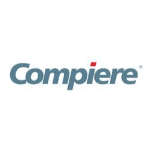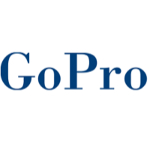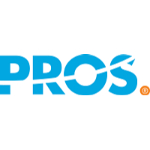List of Best Industry Management Software
Showing 10 of 11 productsCompfie® is a software designed to streamline and simplify compliance management for businesses of all sizes. Its user-friendly interface, customizable features, technology make it the ideal solution for staying on top of regulatory requirements. Sa...Read Compfie® Reviews
Compiere is a trusted enterprise resource planning software that is designed to streamline business processes and increase efficiency. With its intuitive interface and robust features, Compiere is the ideal solution for managing day-to-day operations...Read Compiere Reviews
Wonderware is a leading industrial automation and information management software company, empowering industries to realize their full potential. With its innovative solutions, Wonderware transforms data into valuable insights for optimized operation...Read Wonderware Reviews
Cerm is the powerful, innovative software revolutionizing the way businesses manage their information. Simplify your workflow and streamline your processes with Cerms intuitive and user-friendly interface. Designed with the needs of modern enterprise...Read Cerm Reviews
Fogwing is a tech solution that helps businesses of all sizes optimize their operations, improve efficiency, and increase profitability. With its advanced features and user-friendly interface, Fogwing takes automation to the next level, providing com...Read Fogwing Reviews
GoPro is a solution for capturing and sharing your lifes adventures. With its compact, durable design and high-quality footage, GoPro revolutionized the way we document our experiences. So say goodbye to shaky footage and hello to stunning videos tha...Read GoPro Reviews
iSPIRT is a pioneering software development community that is known for its innovative and game-changing approach to solving complex problems. With a strong focus on technology and collaboration, iSPIRT provides a platform for startups and establishe...Read iSPIRT Reviews
Smart Service is a software designed to streamline and elevate your business operations. With its intelligent features and user-friendly interface, Smart Service is setting a new standard in efficiency and productivity. Say goodbye to tedious tasks a...Read Smart Service Reviews
PROS is an innovative software designed to enhance your business operations. With its advanced features, intuitive interface, and flexibility, PROS revolutionizes the way you manage your organization. Say goodbye to inefficiencies and hello to increa...Read PROS Reviews
ServiceMax is a software solution that revolutionizes the way businesses manage their field service operations. With its innovative features design, ServiceMax streamlines the entire service process, allowing companies to deliver exceptional customer...Read ServiceMax Reviews
- What Is Industry Management Software?
- Top Reasons Why Businesses Need Industry Management Software?
- What Are the Top Key Features of Industry Management Software?
- What Are the Top Benefits of Industry Management Software?
- What Are the Steps to Choose the Right Industry Management Software?
- What Are the Types of Industry Management Software for Different Industries?
- What Are the Technology Trends for Best Industry Management Software?
- What Are the Deployment Options for Industry Management Software?
What Is Industry Management Software?
Industry management software is a sort of computer program that assists organizations in better managing their daily operations. Accounting, customer relationship management, and resource management are common characteristics of this sort of software. It may also include invoice processing, inventory management, and supply chain management functions.
The primary goal of industry management software is to automate and streamline any business's operations and management. Businesses can save time and boost efficiency by automating day-to-day procedures. It can also assist firms in improving their cash flow and making better judgments.
The best Industry management software can deliver data-driven insights to business owners and managers, allowing them to track and assess their performance. It can also help manage customer connections and create better experiences for customers. This software can also be used to automate marketing campaigns, streamline human resource operations, and give analytics.
Overall, industry management software may be a beneficial resource for any size firm. It can help improve operational efficiency, customer service, and decision-making by providing analytics. Businesses may make better decisions and achieve their objectives faster by providing data-driven insights.
Top Reasons Why Businesses Need Industry Management Software?
1. Automated and efficient data gathering, storage, and analysis: Industry management software aids in the automation of the entire data collection, storage, and analysis process, making it easier and faster for organizations to obtain the information they require to make educated decisions.
2. Increased workflow efficiency: Industry management software allows firms to improve their workflow operations by automating time-consuming procedures like stock management, customer service, and accounting.
3. Improved customer experience: By incorporating top industry management software into their operations, firms may improve customer service and happiness while also providing customers with tailored solutions to their specific demands.
4. Improved visibility and control: With industry management software, organizations can monitor their operations, providing them with more visibility into their performance and allowing them to make more informed decisions.
5. Increased profitability and efficiency: Industry management software can help organizations decrease expenses and boost overall profitability by automating procedures, streamlining operations, and offering better customer service.
6. Increased customer retention and loyalty: Industry management software may help firms keep their customers happy and loyal by providing tailored solutions, resulting in improved customer retention rates.
7. Marketing automation: Industry management software can assist organizations in automating their marketing operations, allowing them to target clients more effectively and efficiently.
8. Improved efficiency and effectiveness: Industry management software can assist organizations in streamlining their communications with consumers, stakeholders, and other business partners.
9. Real-time data analysis: By tracking data in real-time, businesses may instantly discover trends and make informed decisions.
10. Predictive analytics: By evaluating historical trends and forecasting future results, industry management software can assist firms in making better decisions.
11. Cost savings: Businesses can save money by streamlining operations and automating laborious procedures, allowing them to reallocate personnel to other parts of the organization.
12. Scalability: Businesses can grow their operations without investing in expensive hardware by employing the cloud and other data storage alternatives.
13. Process optimization: Using top industry management software, firms can improve the efficiency and effectiveness of their operational processes.
14. Automation: Industry management software can automate time-consuming and repetitive procedures, freeing up time for other projects or activities.
15. Compliance: By tracking corporate processes, industry management software can assist organizations in remaining compliant.
What Are the Top Key Features of Industry Management Software?
The following are the main key aspects of industry management software:
1. Multi-User handle: Industry management software is intended to handle numerous users, allowing them to interact and manage operations more efficiently.
2. Automated Workflows: Automated workflows make it easier and faster for top industry management software to plan, track, and execute operations.
3. Stock Management and Order Processing: This feature enables firms to better maintain inventory levels and handle sales orders.
4. Data Analysis and Reporting: Data from various sources can be analyzed and reported on using the best industry management software.
5. Process Control and Tracking: Software can assist firms in tracking and controlling their operations in order to improve efficiency.
6. Dashboards and Scorecards: Dashboards and scorecards enable management to monitor their employees' performance.
7. HR Management and Scheduling: This feature allows businesses to track and manage HR activities as well as employee scheduling.
8. Document Management: Document management tools make it easier to store, organize, and access documents.
9. Supplier Management: This feature enables firms to more effectively manage their supplier relationships.
10. client Relationship Management (CRM): This capability enables firms to more effectively manage client interactions.
What Are the Top Benefits of Industry Management Software?
1. Greater efficiency: Top industry management software can assist in streamlining processes and reducing the amount of manual labor necessary. This can result in a more efficient and productive workplace.
2. Improved accuracy: Automation can help reduce the possibility of errors while also ensuring correctness. Before saving data, it can be validated against predefined parameters.
3. Improved customer service: Automation can also help with customer service by giving accurate and timely information to customers.
4. Cost savings: Automated procedures can reduce the amount of manual labor required, saving firms money.
5. Automated reporting: Software can provide automated reports, allowing for more accurate data and trend analysis. This can help to inform decisions and keep policies up to date.
6. Improved visibility: Software can provide extensive visibility into processes and information, allowing for a more in-depth grasp of business operations.
7. Greater scalability: Software solutions are meant to scale with enterprises, which means that organizations may expand without investing in new systems.
8. Easier time management: Calendar events and activities can be displayed by software, simplifying time management and providing a clearer picture of day-to-day chores.
What Are the Steps to Choose the Right Industry Management Software?
1. Determine your company's needs and requirements: Before you choose any software, you must first describe your company's goals and objectives, understand your company's demands, and identify the operations you need to track.
2. Investigate the available options: Investigate the best industry management software solutions available to you by conducting internet research and gathering information from reliable sources.
3. Examine the software's features: Examine the software's features carefully to see if it meets the needs of your company.
4. Examine the software's support features: Check to see if the program you're considering has strong customer service and regular upgrades.
5. Consider the price: Consider the price of the program in relation to the features.
6. Make a decision: After thoroughly assessing the software's features and cost, make an informed selection.
What Are the Types of Industry Management Software for Different Industries?
Top Industry management software differs depending on the industry and type of firm.
The following are examples of common industrial software:
1. Manufacturing Resource Planning (MRP): A tool used by firms to help optimize manufacturing operations by integrating processes, lowering overhead costs, and enhancing quality control.
2. Enterprise Asset Management (EAM): This form of software assists firms in automating activities and making better business decisions. It is used to maintain assets and analyze performance.
3. Supply Chain Management (SCM) software: This software assists organizations in managing their product sourcing, warehousing, and delivery. Warehouse management systems, order fulfillment systems, and supplier quality assurance are examples of common SCM software.
4. Human Resources and Talent Management (HRTM) software: This type of software enables businesses to manage employee records and streamline personnel procedures such as recruitment and performance evaluation.
5. Enterprise Resource Planning (ERP): ERP industry management software is a bundled set of programs that aids in the automation of important company activities. It has several applications, including financial management, customer relationship management (CRM), supply chain management, and human resource management.
6. Customer Relationship Management (CRM): CRM software allows businesses to manage customer connections and data. CRM software solutions that are commonly used include call center management, customer analytics, and contact center management.
What Are the Technology Trends for Best Industry Management Software?
The best industry management software technology trends are continually expanding and growing.
Cloud-based solutions, expanded mobile access, improved analytics and data visualization, and increased artificial intelligence (AI) and machine learning capabilities are among the most relevant advancements. Cloud-based solutions enable businesses to access and store data from any internet-connected device, doing away with the need for manual installation and hardware administration.
Furthermore, mobile access enables workforce members to work from home or on the road, and to engage with customers, accomplish tasks, have access to client information, and maintain security. Analytics and data visualization tools can assist businesses in tracking their performance, identifying areas for improvement, and making more educated decisions.
Finally, artificial intelligence (AI) and machine learning tools can enable automation, improve customer service, and boost efficiency across an organization.
What Are the Deployment Options for Industry Management Software?
Deployment solutions for top industry management software differ depending on the product's features and requirements.
Industry management software is typically deployed in the following ways:
1. On-premise: In this type of deployment, the software and data are hosted directly on the customer's in-house computers or servers.
2. Hosted: The program or application might be hosted in the cloud or at an internal data center co-location. The software and data can be accessed by the consumer via the internet.
3. SaaS: Software and data can be supplied to customers as a service, frequently with varying pricing options and levels of customisation.
4. Hybrid: For particular applications or objectives, a combination of cloud and on-premise deployment can be used.










